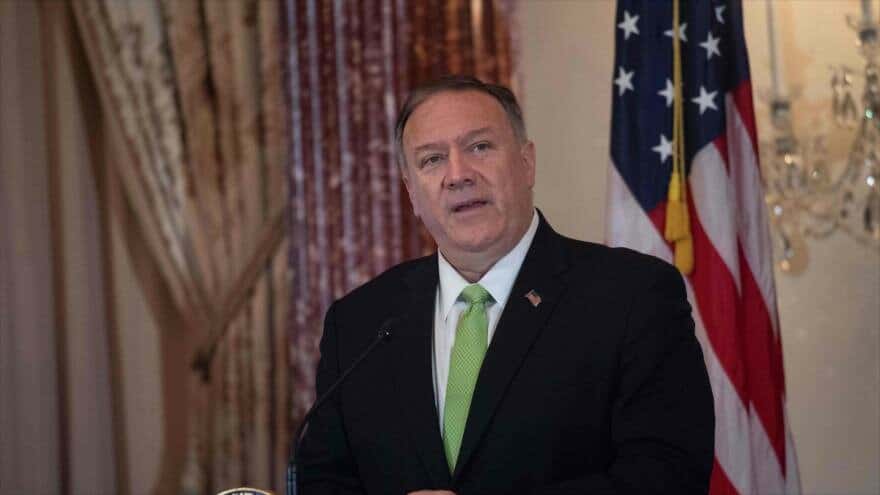
US Secretary of State Mike Pompeo speaks at an event in Washingotn, October 31, 2019. (Photo: AFP)

Orinoco Tribune – News and opinion pieces about Venezuela and beyond
From Venezuela and made by Venezuelan Chavistas

US Secretary of State Mike Pompeo speaks at an event in Washingotn, October 31, 2019. (Photo: AFP)
Mike Pompeo denounced the UN vote that seeks to free Cubans from the brutal US blockade and thanks Israel and Brazil for voting against it.
With 187 votes in favor, three against and two abstentions, the United Nations General Assembly (UNGA) on Thursday approved a resolution calling for lifting the US economic blockade to Cuba, which has lasted almost six decades.
The US Secretary of State, Mike Pompeo, considered the vote “a distraction” from what is happening on the island that also “damages the pride” of Cubans.
“Yesterday’s vote by the UN was a distraction and frankly sad. It damages the pride of the Cubans,” Pompeo said in a message left on his Twitter account on Friday, without bothering to point out the damage that has caused such a blockade to people on the Caribbean island.
RELATED CONTENT: The Secret of Cuba’s Success: International Solidarity
Pompeo, in another separate tweet, took the opportunity to thank the support of the Tel Aviv and Brazil regimes for their observance of the unlawful Washington initiative.
“We are honored to have joined our friends Brazil and Israel to defend the human rights of the Cuban population,” said the head of the US Diplomacy, who also accused Havana of “mishandling” the Cuban economy and of “repressing” the nation.
Once again, the highest debate body of the United Nations overwhelmingly rejected the economic, commercial and financial embargo imposed on Cuba by the White House and called for an end to it, highlighting it is illegal and contrary to multilateralism. The resolution adds to the 27 that had already been adopted since 1992, when the General Assembly began voting each year on the issue.
RELATED CONTENT: Chancellor Arreaza Met with UN Secretary General Antonio Guterres
As every year, except in 2016 when the US abstained, and the regime of Israel voted against, this time they were joined by Brazil. The abstentions were from Colombia and Ukraine. For the first time, Brazil and Colombia did not support the resolution, thus fracturing the traditional Latin American and Caribbean unanimous position.
In return, countries like Russia and China have celebrated the vote. Moscow emphasized that support for the island showed international “unity” in the face of pressure from Washington.
The ties between Havana and Washington cooled dramatically since the victory of the Cuban revolution: the first major defeat of the United States in Latin America, which it considered its “backyard.” The Cuban revolution, in fact, generated a model of anti-imperialist resistance, of national reaffirmation and positioned Latin America as the “protagonist of the Cold War.”
ask / ktg / hnb
Featured image: US Secretary of State Mike Pompeo speaks at an event in Washingotn, October 31, 2019. (Photo: AFP)
Translated by JRE/EF